News Release: Nimbl Launches Their New Evolution Expedition Vehicle
Nimbl Vehicles was forged from a combination of experience and legacy, founded by a team of global travelers that identified an opportunity to leverage the foundation of an existing platform (XPCamper) and to evolve. It was that spirit of refinement that inspired Judd Newman and Jon Turner to develop the Evolution Model, the first of a new line of premium expedition vehicles designed to explore the globe.
When any new expedition vehicle hits the market, it is often the impulse to focus on the specifications, like how many watts of solar, or the size of the gray water tank. While those elements are important, it is actually the team of people producing the vehicle that is most important. What is their experience? Do they have sufficient engineering resources to complete FEA (finite element analysis) and other durability tests? Have they traveled sufficiently to understand the needs of overlanders on the road? Are they bringing new ideas and proven technologies to the customer?
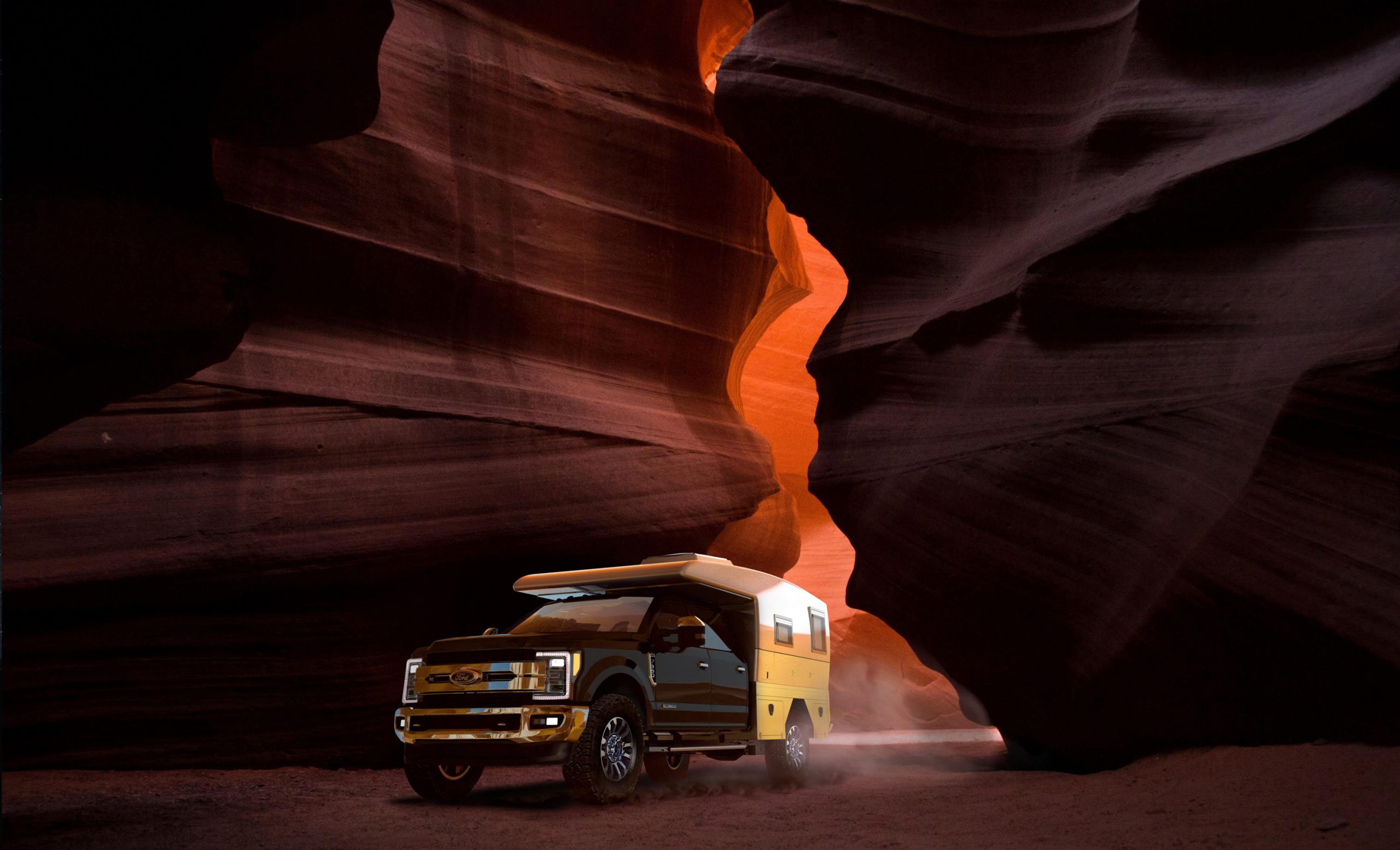
When we first learned about the new Nimbl vehicles, I researched the team with those questions in mind, and found them to be a group of lifelong explorers that have combined their passion for travel with significant manufacturing experience. Judd Newman as president has worked for a quarter-century with Fortune-500 companies, while managing those projects from Africa, Asia, Europe, and the Americas. Jon Turner is the chief engineer and founder with a love for made-in-the-USA design and manufacturing. He has traveled the globe as a US Army soldier and then as a civilian engineer. Of additional interest to me is Steve Kozloff, who describes himself as an adventure craft designer, most notably creating the Goliath Series of polar-class expedition yachts. These gentlemen certainly represent a qualified quorum to start a new expedition vehicle company.
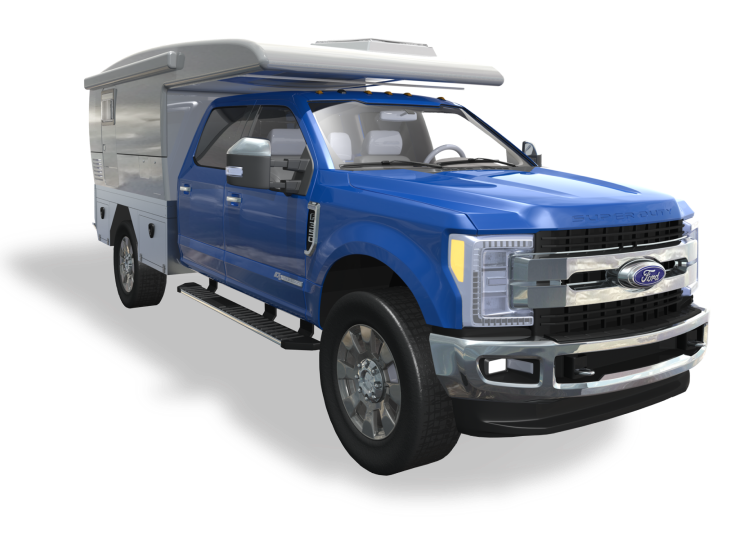
For over a year, this team has been working to refine the existing technologies and make a better camper, including the selection of the Ford chassis and a monocoque uni-body camper. The F350 is certainly a good fit, and available with a 7.3 liter V8 and 10-speed automatic transmission. The specification of a 1 ton provides some early insights into the lighter weight of the Evolution. This is certainly a positive, as many competitive expedition vehicles are so heavy that they begin pushing the 20,000-pound territory. The F350 has an available locking rear differential and multi-mode traction control, along with a 48-gallon fuel tank and an Icon suspension system with 35-inch-tall tires.

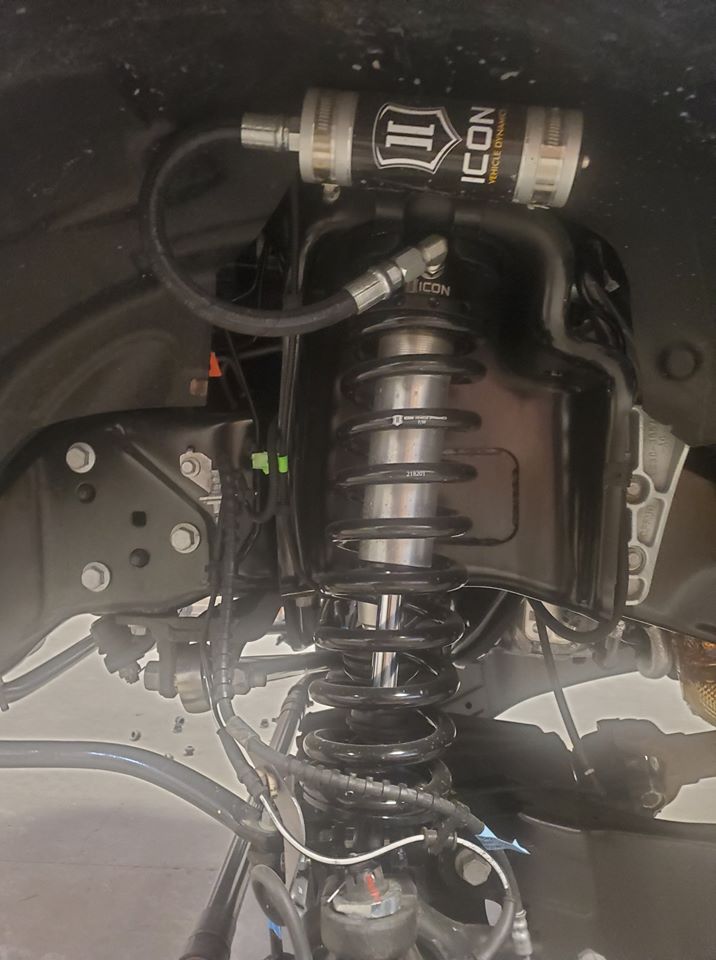
In addition to the suspension, Nimbl has designed an ultra-light bumper and other performance-improving modifications to help ensure that the camper can access the remote and rugged locations of the globe. Early production images also show attention to detail such as interference-testing, to ensure that the suspension has full articulation with the Nimbl aluminum subframe and flatbed.
There are many advantages to the full-size trucks, principally payload. However, other advantages are more apparent with long-term use, including accelerating and stopping performance, along with overall occupant comfort and space. Full-size trucks have also become more capable and are better supported by the overland aftermarket, which results in improved backcountry capability.
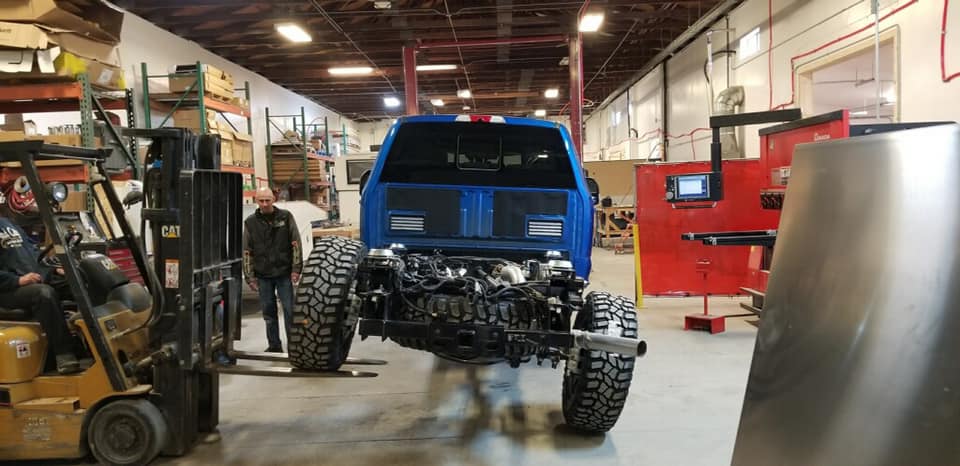
While the Ford is notable, it is actually the camper that makes the Nimbl unique. The habitat features a seamless monocoque composite construction that is a combination of fiberglass and carbon fiber. The lifting roof design significantly improves aerodynamics and permits the camper to be shipped internationally via container. The design considers weight at every corner, including the use of aluminum honeycomb composites and lithium batteries.
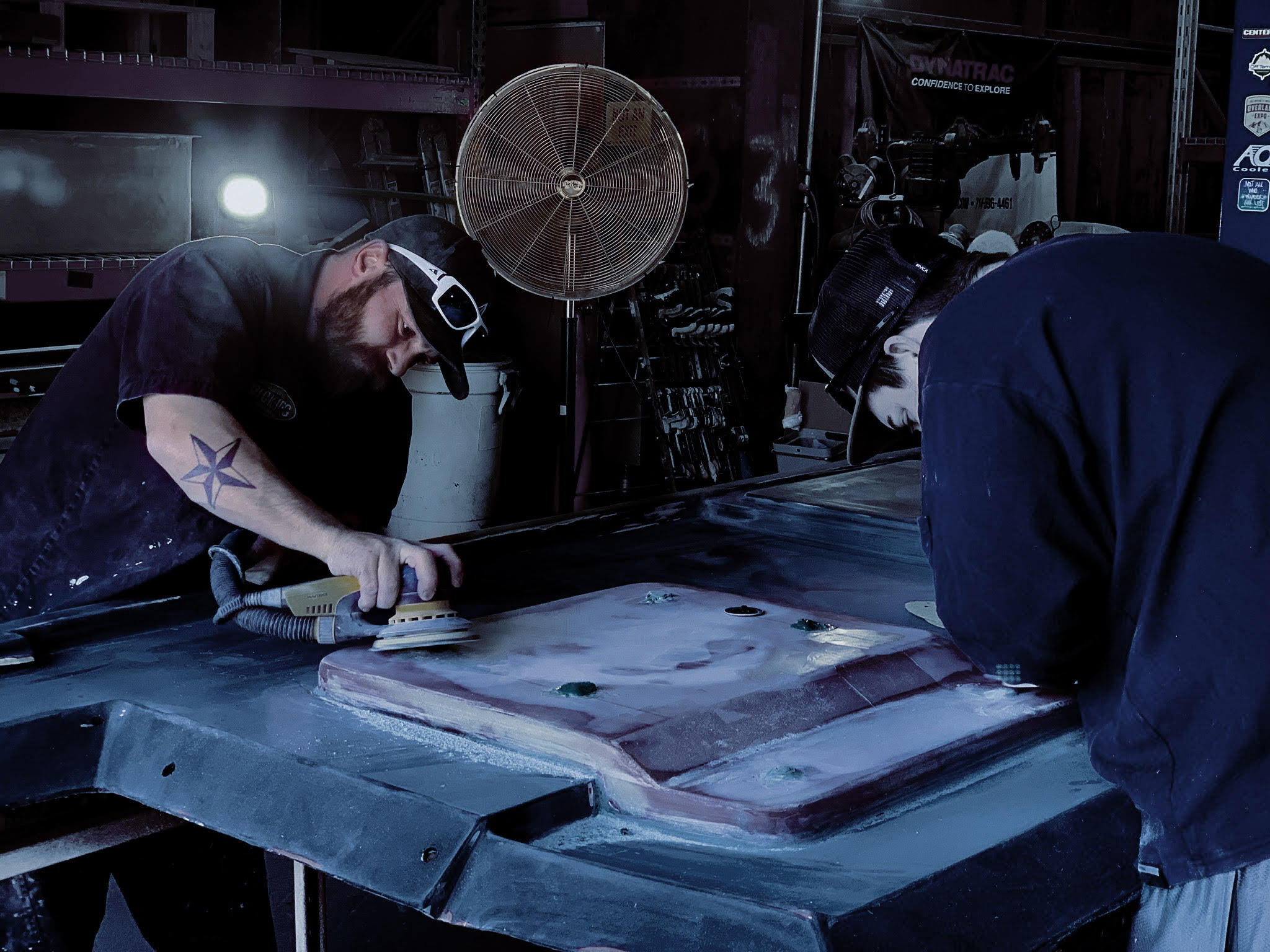
Seeing the early prototype images of the interior certainly speaks to the shipwright philosophy, as the camper is reminiscent of the polar-class expedition sailboats of Mr. Kozloff. it is intentionally simplistic and serviceable, yet complete with all of the amenities for life on the road. Based on initial specifications from the Nimbl team, they focused on several enhancements and standard features, including:
- Reducing and adding rigidity through the strategic use of carbon fiber and high strength, low weight, aluminum honeycomb.
- Improving the electrical system with 200 Ah LiFePO4 batteries and an integrated Victron inverter/charger/solar system, 400 Ah optional
- All-electric cooking using a 2-burner induction cooktop, DC fridge, and (optional) microwave
- Choice of convenient cassette or long service interval composting toilet
- Optional 8,000 Btu air conditioning for humid and hot environments
- Industry-first LED UV water-sterilization system
- A custom (thick) memory foam sleeping system
- Optional 2200-watt auxiliary generator
- Carbon-fiber doors to reduce weight
- Diesel heater
- Diesel hot water system
- Hydraulic lifting roof
- 80 gallons of fresh water (and 24-gallon gray water tank)
- Multi-stage water filtration system
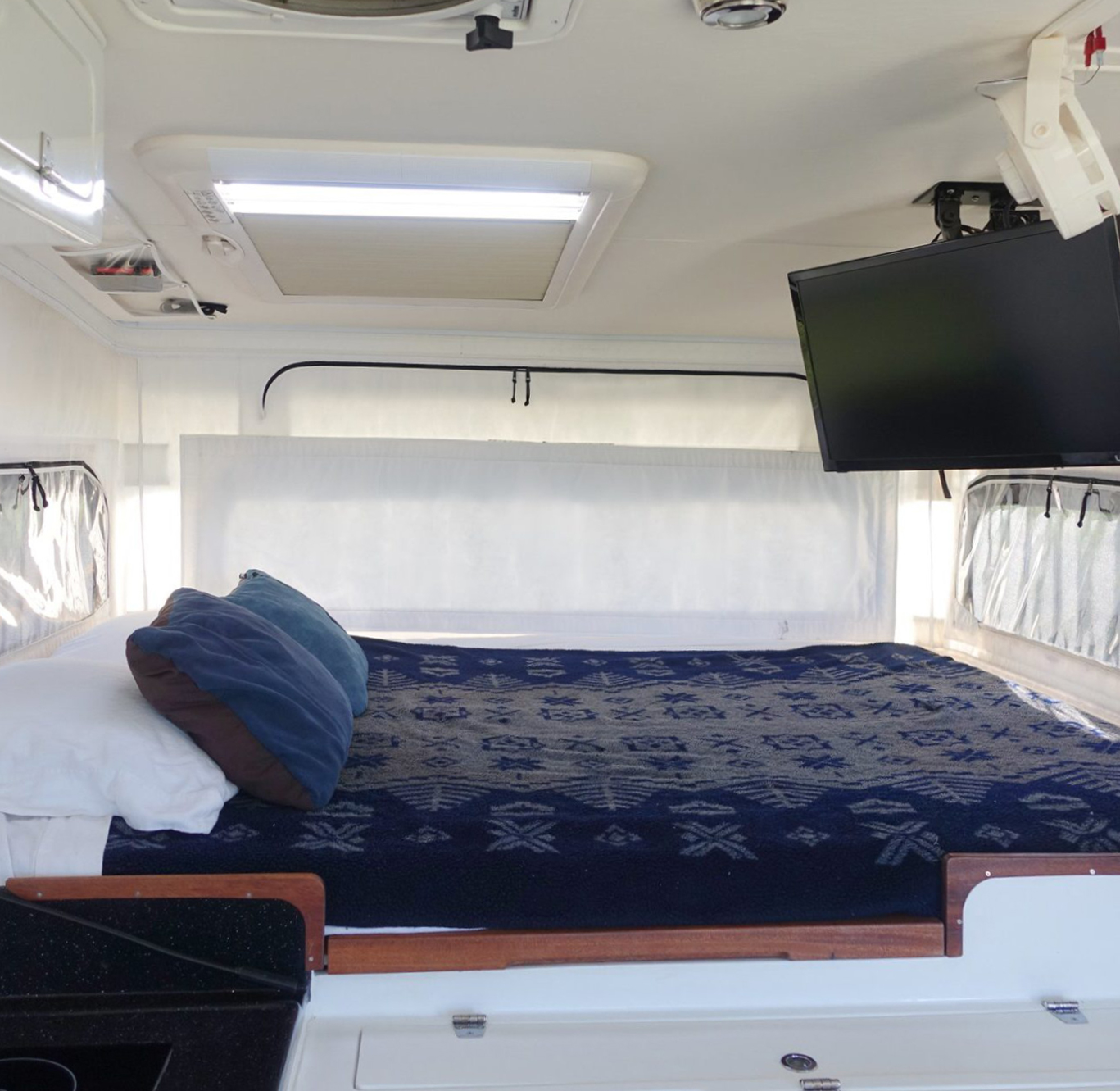
It is clear that the Nimbl team is committed to producing legitimate overland vehicles with an emphasis on backcountry performance and international capabilities. They are currently producing the first production units and will be releasing more details and images in the coming months. While we have not had the opportunity to test the vehicle, the Evolution checks all of the important boxes on initial review. We look forward to seeing one in person, and reporting on its performance from the field.
Nimbl just announced introductory pricing at $249,000, which includes a $70,000 vehicle allowance (for Ford or RAM chassis) and the custom aluminum flatbed.
To find out more information, refer to their website: nimblvehicles.com
Email: info@nimblvehicles.com
Phone: 855-957-0507
Update and Editor’s Note: The Nimbl website touches on the legacy connection to XPCamper in the following links.


